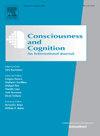Curiosity and reward after unsuccessful memory recall
IF 2
3区 心理学
Q2 PSYCHOLOGY, EXPERIMENTAL
引用次数: 0
Abstract
Curiosity is a motivational state characterized by the desire to obtain knowledge. Prior research suggests that metacognitive experiences during unsuccessful memory recall may induce curiosity. Specifically, feeling-of-knowing (FOK) experiences have been associated with increased subsequent information-seeking behaviour for inaccessible information. Here, we further investigated this relationship by focusing on subjective experiences of curiosity and reward. Our paradigm required learning of face-name associations followed by probing of name recall and FOK experiences on unsuccessful trials. Subsequently, participants rated their curiosity (Experiment 1) or made information-seeking choices and rated their satisfaction upon completion (Experiment 2). Results showed, as predicted, that FOK experiences correlate with subjective ratings of curiosity as well as information-seeking choices. Critically, we found they are also positively correlated with satisfaction reported upon exposure to sought information. These correlational findings converge to suggest that unsuccessful memory recall shapes subsequent information seeking behaviour through a combination of metacognitive and reward-based mechanisms.
回忆失败后的好奇心和奖励
好奇心是一种以获取知识的欲望为特征的动机状态。先前的研究表明,在不成功的记忆回忆过程中的元认知经历可能会引起好奇心。具体来说,“知道的感觉”(FOK)经历与随后对无法获得的信息的信息寻求行为的增加有关。在这里,我们通过关注好奇心和奖励的主观体验来进一步研究这种关系。我们的范式要求学习面孔-名字联想,然后探索名字回忆和失败的FOK经验。随后,参与者对自己的好奇心进行评分(实验1)或做出信息寻求选择,并在完成后对自己的满意度进行评分(实验2)。结果表明,正如预期的那样,FOK体验与好奇心和信息寻求选择的主观评分相关。至关重要的是,我们发现它们也与曝光所寻求信息的满意度呈正相关。这些相关的发现表明,不成功的记忆回忆通过元认知和奖励机制的结合塑造了随后的信息寻求行为。
本文章由计算机程序翻译,如有差异,请以英文原文为准。
求助全文
约1分钟内获得全文
求助全文
来源期刊

Consciousness and Cognition
PSYCHOLOGY, EXPERIMENTAL-
CiteScore
4.30
自引率
8.30%
发文量
123
期刊介绍:
Consciousness and Cognition: An International Journal provides a forum for a natural-science approach to the issues of consciousness, voluntary control, and self. The journal features empirical research (in the form of regular articles and short reports) and theoretical articles. Integrative theoretical and critical literature reviews, and tutorial reviews are also published. The journal aims to be both scientifically rigorous and open to novel contributions.
 求助内容:
求助内容: 应助结果提醒方式:
应助结果提醒方式:


